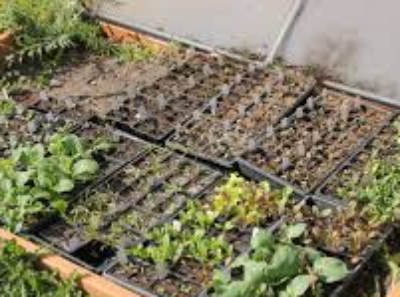Specialized Gardening Tips for Thriving Green Spaces
Gardening is more than just planting seeds—it’s about creating a thriving environment where plants and nature coexist beautifully. Whether you’re just starting out or looking to elevate your green thumb skills, these specialized gardening tips can help you make the most of your outdoor space. From choosing the right plants to sustainable techniques, let’s explore some practical ideas to take your gardening to the next level.
Choosing the Right Plants
Select plants that match your local climate and soil conditions. Native plants are often the best choice as they require less maintenance and attract beneficial insects. For beginners, easy-to-grow options like marigolds, basil, or lettuce can help build confidence.
Building Healthy Soil
Soil is the backbone of gardening. Testing your soil’s pH and nutrient levels can reveal what it needs. Adding organic compost or natural fertilizers helps improve fertility and texture. Consistent, deep watering is key, but avoid overwatering to prevent root problems.
Gardening in Small Spaces
If space is limited, try container gardening or vertical setups like wall-mounted planters or trellises. These methods save space and can turn even a balcony into a lush garden haven. Hanging baskets are another great way to maximize small spaces.
Hydroponics: Soil-Free Solutions
Hydroponic gardening is a modern, efficient way to grow plants. Instead of soil, plants thrive in nutrient-enriched water. This technique ensures faster growth and is perfect for areas with poor soil or indoor gardening enthusiasts.
Embracing Permaculture
Permaculture is all about creating self-sustaining ecosystems in your garden. Companion planting, like pairing tomatoes with basil, can deter pests and boost growth. Incorporating animals such as chickens or bees enhances productivity while supporting biodiversity.
Natural Pest Management
Healthy plants naturally resist pests, but sometimes they need extra help. Introduce beneficial insects like ladybugs or use eco-friendly solutions such as neem oil to keep harmful pests at bay. Regular inspections and removing damaged foliage also help maintain plant health.
Seasonal Planting
Plan your garden around your region’s growing seasons. Cool-season crops like spinach and broccoli thrive in early spring or late fall, while heat-loving plants like tomatoes and peppers flourish in summer.
Eco-Friendly Gardening Practices
Sustainable gardening benefits both your plants and the environment. Simple practices like rainwater harvesting, composting kitchen waste, and mulching can reduce water usage and enrich the soil.
Mastering Pruning and Maintenance
Pruning is essential to encourage growth and remove dead or damaged parts of your plants. Flowering shrubs, for example, should be pruned after they bloom, while deadheading spent flowers encourages continuous blooming.
Lifelong Learning
Gardening is a continuous learning journey. Experiment with new techniques, explore workshops, and engage with local gardening communities to expand your skills. Even seasoned gardeners discover new tips to improve their practices.
Specialized Gardening Tips Frequently Asked Questions
1. How do I improve soil quality?
Incorporate compost, manure, or other organic materials to boost nutrients. Test soil periodically to adjust as needed.
2. What are good beginner plants?
Lettuce, cherry tomatoes, herbs, and sunflowers are easy to grow and require minimal care.
3. How can I manage pests naturally?
Use companion planting, introduce beneficial insects, or apply natural solutions like garlic spray to deter pests.
4. How do I make compost at home?
Mix green materials (vegetable scraps) with brown materials (dry leaves) in a bin. Turn the pile regularly and keep it moist for optimal decomposition.
By using these specialized gardening tips, you can create a thriving, beautiful garden tailored to your space and goals. Gardening is not just a hobby—it’s a way to connect with nature and create something truly rewarding. Start small, keep learning, and enjoy the journey of growing something wonderful.
Link to an expert Youtube channel
Discover more from AlavaMass News And Mass Informations
Subscribe to get the latest posts sent to your email.



